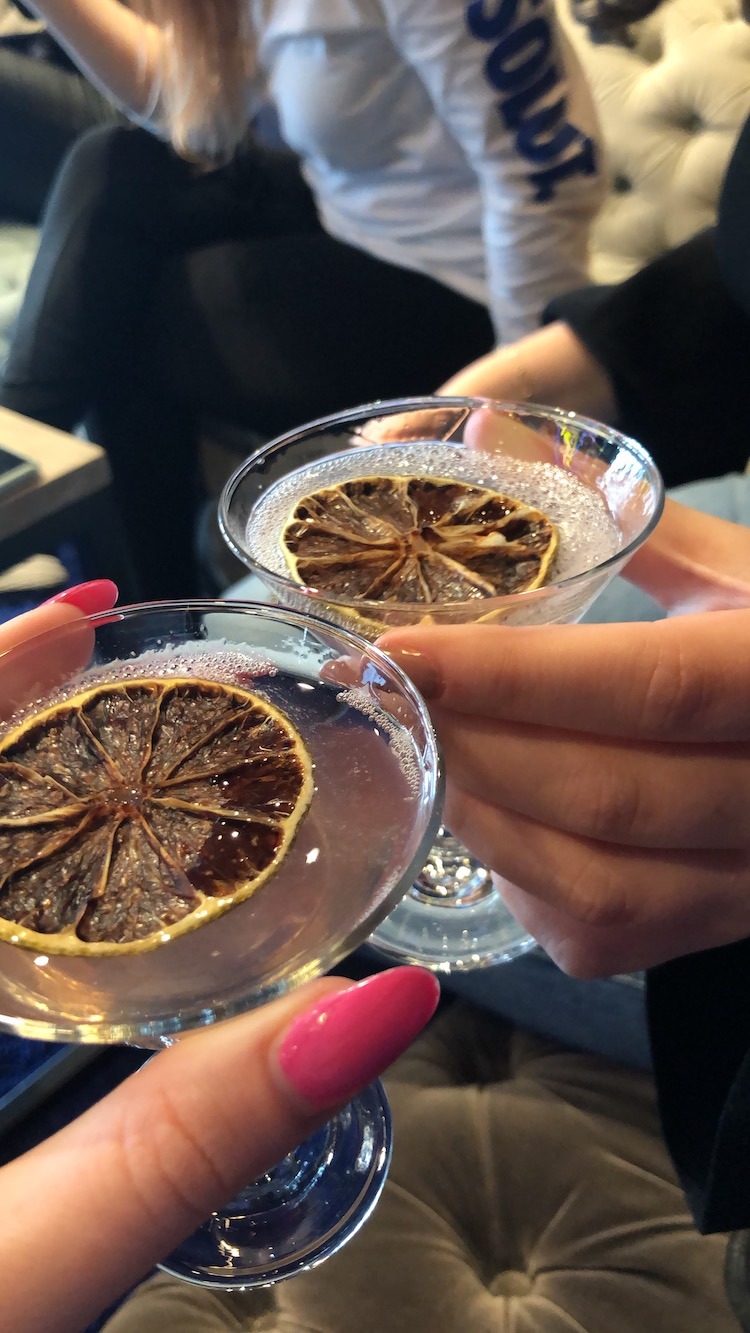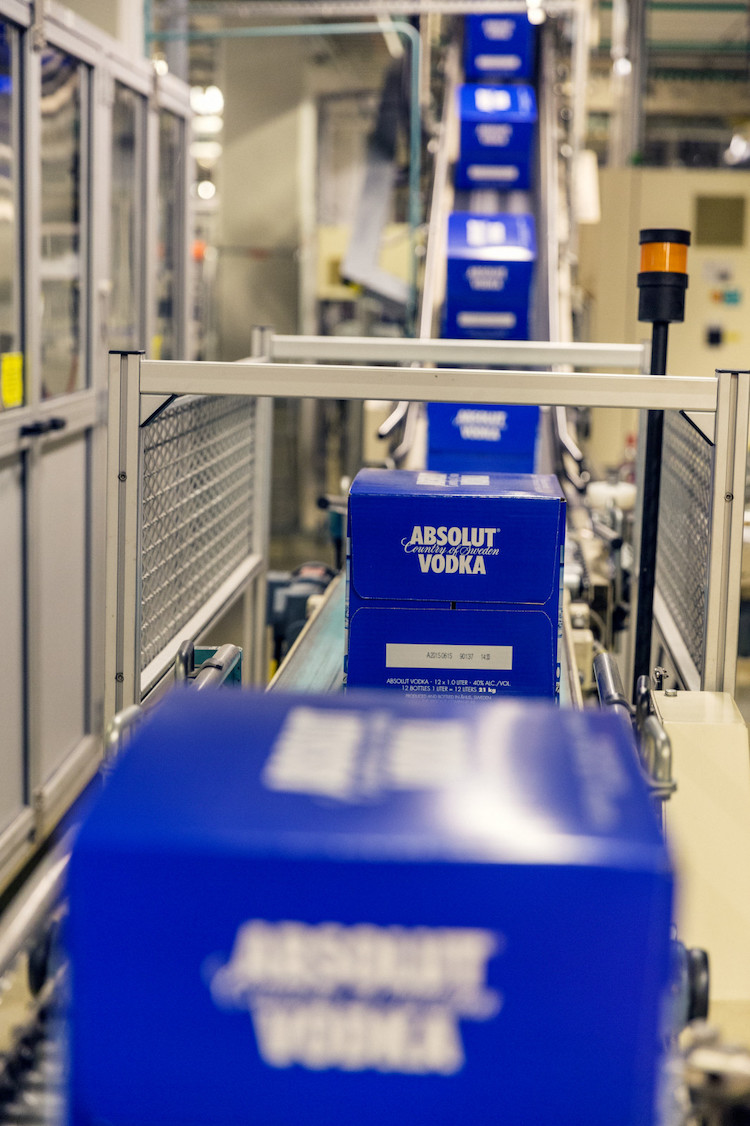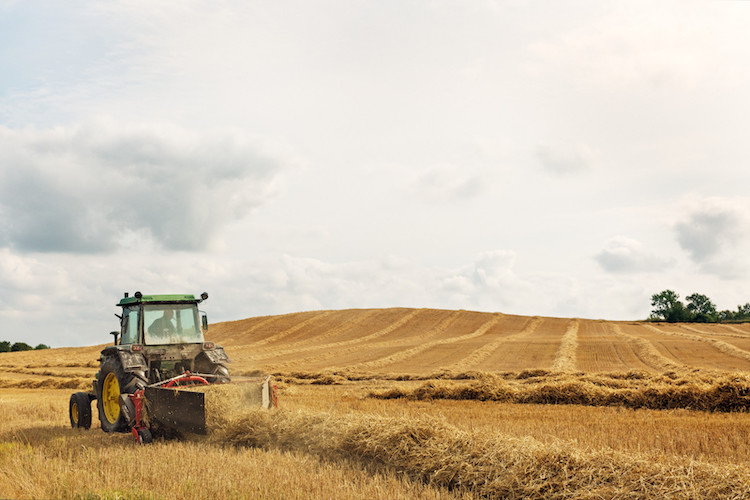Absolut's Sustainability Efforts Are Making Your Cocktails Eco-Friendly
When people drink vodka, they typically aren't thinking about the environment — but maybe they should be. Absolut Vodka, one of the most recognizable vodka brands in the world, has ramped up efforts toward sustainability through innovation and education in the hopes that one day the word vodka will be easily linked to environmentalism.
10 Things You Didn't Know About Absolut
From seed to bottle to sip, Absolut is taking steps to make sure its operations are eco-friendly, starting with the brand's bottling plant in Åhus, Sweden, and extending even into education programs that help bartenders learn how to minimize ingredient waste.
The Swedish government has pledged to be carbon neutral by 2045, meaning businesses there will be expected to remove as much carbon dioxide from the atmosphere as they put out into it. Absolut is aiming to be well ahead of that schedule, and they've taken measurable steps at their factory — the company claims to have reduced energy consumption by 45 percent since 2004, and the carbon emissions per liter of vodka have dropped 80 percent in the same period. Since carbon emissions raise the temperature of the planet and contribute to global warming (which is killing the environment), being carbon neutral positively impacts the planet.
Sweden's eco-friendly culture aids the push for sustainability in other ways as well, as we learned when we recently joined the Absolut team there for a tour. Sweden recycles 92 percent of its glass, providing a source for the brand's 40 percent recycled bottles. The brand also locally sources much of the winter wheat used to make their vodka from farms in the area, and the factory draws water from nearby sources.
Any "stillage" — the nonalcoholic leftovers from the water, wheat flour and yeast used to produce vodka — is given to Swedish farms to feed thousands of pigs and cows across the Scandinavian country, so nothing goes to waste — even the waste itself.
Aside from greening their production processes, Absolut is trying to make the bar experience more eco-friendly by working with industry professionals. In 2018, the brand launched an initiative called The Green Hustle, which aims to educate bartenders on how to minimize food waste and make their ingredients last longer.
For example, limes are among the least eco-friendly cocktail ingredients despite being a bar staple. Typically, limes have to be picked by machine and shipped around the world; the process creates a ton of carbon emissions. So instead of cutting, squeezing and then tossing out limes, Absolut team member and longtime bartender Rico Dynan advocates for a practice he calls "boiling the bones."
By boiling what seems like a finished lime husk with malic acid, citric acid and sugar, bartenders can actually produce a lime stock that can be used in a variety of cocktails. It's also an economic benefit for the bar — it's cheaper to make and use stock out of ingredients that would otherwise be discarded than to constantly purchase more limes.
During the visit, we got a chance to mix and taste one of these "trash cocktails," an Absolut cosmopolitan made with lime stock instead of fresh lime. We noted almost no difference in the flavor despite the use of resourceful ingredients, and the lime stock was actually easier to use than an actual lime.
Of course, to make a standard cosmo at home, you'll still need cranberry and triple sec, so even if you have lime husks on hand you'll want to pick those up from the supermarket (assuming that's legal in your state) along with a bottle of Absolut — which, thanks to the brand's sustainability efforts, might be one of the most eco-friendly things you can buy at the grocery store.
Travel expenses as well as food and drink samples for this story were provided by Absolut at no cost to the writer.


